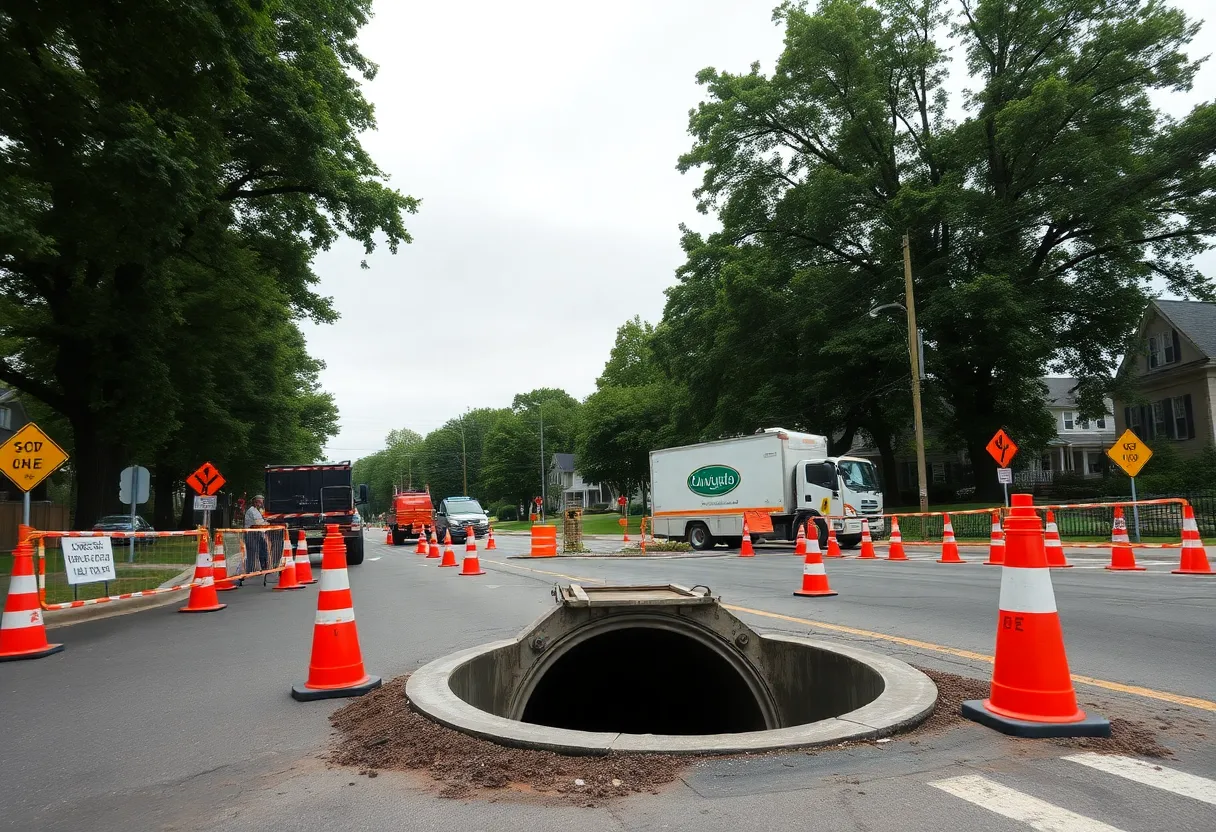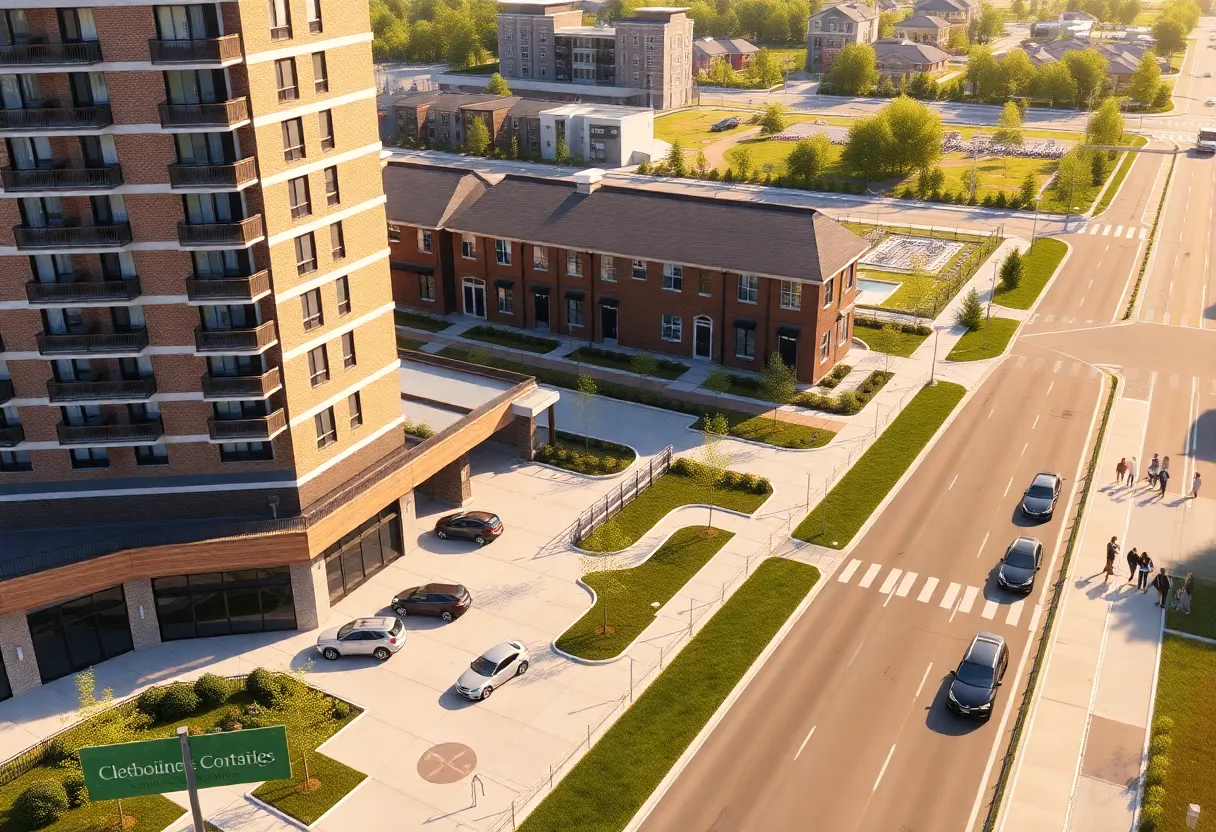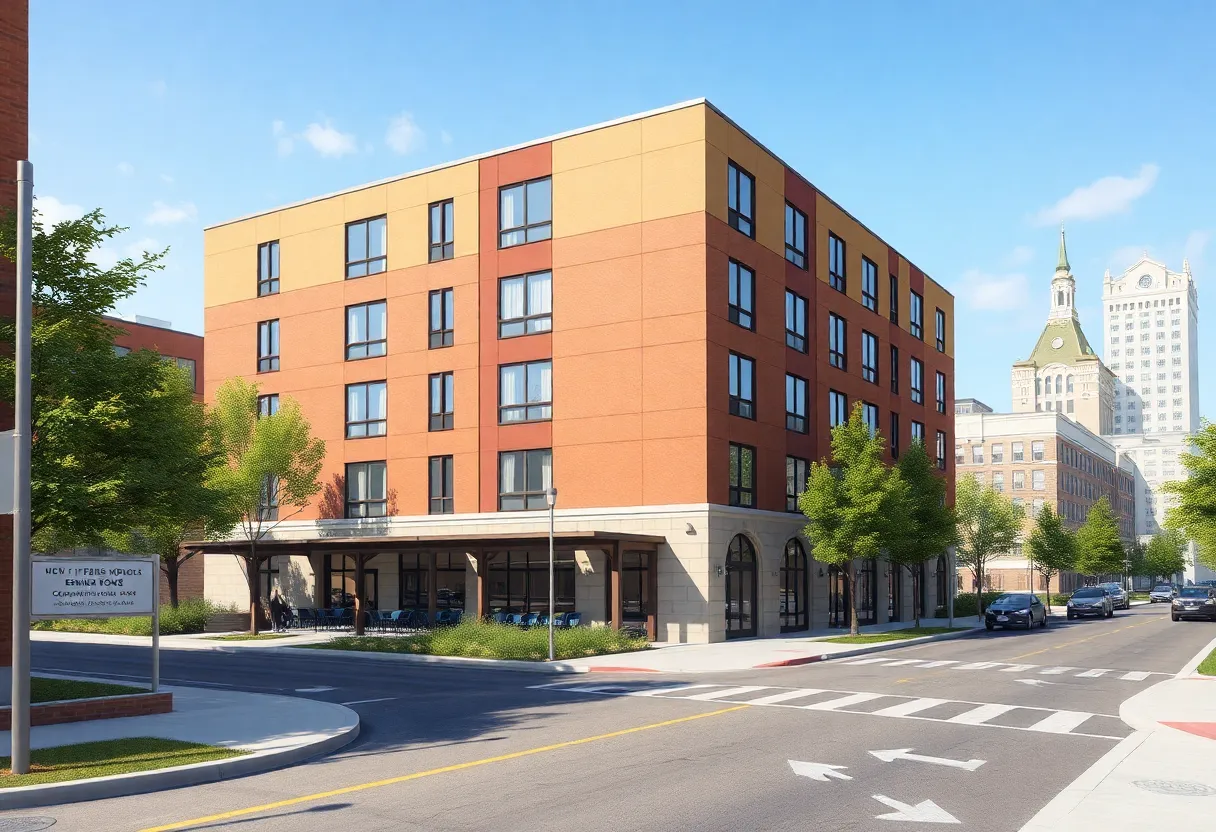, September 8, 2025
News Summary
Princeton’s council will consider borrowing $6.3 million from the New Jersey Infrastructure Bank to fund the Mini‑System 36 sewer rehabilitation covering neighborhoods bounded by John, Ewing, Mount Lucas and Quarry streets. The work uses trenchless methods, non‑toxic grout injections, selective lining and replacements to cut groundwater and rainwater infiltration, lower treatment costs and extend pipe life. The agenda also includes a Hamilton Avenue sewer replacement up to $409,670. Budget pressures and a multi‑year capital plan could raise sewer fees gradually. A court order is temporarily blocking rescission of a separate $2.75 million contract after a contractor lawsuit.
Princeton Council to vote on $6.3 million loan for sewer repairs
The Princeton Town Council will vote at 7 p.m. on Sept. 8 on a plan to borrow $6.3 million from the New Jersey Infrastructure Bank Construction Financing Loan Program to pay for the Mini‑System #36 Sewer Rehabilitation Project. The project will cover most of northern Princeton in the area bounded by John Street, Ewing Street, Mount Lucas Road and Quarry Street. Town officials say the work is meant to cut the amount the town pays to treat wastewater and to prevent more invasive fixes later.
Why the loan and what it will pay for
The loan would fund non‑excavation and excavation repairs in the Mini‑System #36 area, including injecting a non‑toxic chemical grout to seal joints and cracks in sewer pipes. The work targets groundwater and rainwater that is entering the sanitary system — a problem that has driven higher treatment bills because the town currently pays to treat more wastewater than residents and businesses actually produce. Studies estimate that 40–50% of sewer flow comes from unwanted groundwater and rainwater.
Budget background and cost pressures
The town has already authorized borrowing for sewer work in both June 2023 and June 2024. Sewer costs were a major reason cited for an earlier budget increase and higher taxes this year. The municipal budget for 2025 shows sewer system expenses rose by $154,981, from $1,297,545 in 2024 to $1,452,526 in 2025, making sewer work the second-highest public works cost. Funding the regional treatment facility also rose: appropriations to the Stony Brook Regional Sewerage Authority increased by $211,863 from 2024 to 2025. The town notes these increases are driven in part by inflationary pressures on sewerage treatment.
How this fits into the long-term plan
The town’s sewer plan through 2031 calls for roughly $7.25 million per year for pipe replacement, inflow & infiltration reduction, trunkline and pump station work, and equipment replacement. The plan also identifies an extra roughly $3 million per year to catch up on years of deferred maintenance. If the plan moves forward as presented, a typical single‑family sewer fee could rise gradually and reach as much as $841 by 2031. The fee is added to tax bills and only charged to homes on public sewers. The council must still approve annual capital plans and individual project awards before work proceeds.
Related projects and coordination
The council will also vote to approve a separate sanitary sewer replacement on Hamilton Avenue that could cost up to $409,670. Staff are trying to coordinate sewer replacements with road work and other utilities to reduce repeated openings of the same streets. Some I&I reduction work is planned to be minimally disruptive because it does not require excavation and is often done in easements or unpaved rights‑of‑way. Where full excavation is needed, work will be timed with road reconstruction.
Pump stations and other upgrades
The town is analyzing several pump stations that are at or near the end of their useful life, including All Saints, Crooked Tree, Herrontown, Mercer, Winfield and Pretty Brook. The study will evaluate resiliency against major storms and guide design and replacement work planned for later phases. The system overall extends roughly 130–150 miles and contains many older pipes that have not yet been converted to industry-standard PVC.
University funding and local support
The local university pledged $50 million over five years for municipal infrastructure and programs for lower‑income residents. Of that pledge, $28.2 million was for unrestricted municipal use and $11.35 million was earmarked for specific infrastructure projects. In the prior year the university paid municipal property and sewer taxes and provided voluntary contributions totaling millions of dollars, including $4 million specifically for sewer infrastructure repairs. The university also paid taxes and other contributions that helped offset some costs.
Contractor lawsuit and court order
The council faces a separate legal issue tied to a multi‑million dollar sewer contract with a local contractor. A Mercer County Superior Court judge issued a temporary restraining order preventing the town from rescinding a roughly $2.75 million contract for sewer rehabilitation on Spruce Street and Linden Lane with an Edison‑based contractor. The case centers on a container of asbestos‑containing material found at a municipal facility and disagreements over who directed storage practices. The judge noted the dispute involved actions alleged to have occurred under past contracts and said canceling the current contract could cause irreparable harm to the contractor, who had already spent money preparing for the work. The court told both sides to consult and consider next steps.
Where residents may feel impacts
Sewers are less visible than roads, but the town warns residents there may be temporary disruptions during rehabilitations and replacements. Work in Mini Systems 35 and 36, along Mount Lucas Road and parts of Witherspoon Street, is already underway or being planned. The town is trying to limit inconvenience by coordinating permits, timing, and combining projects where possible.
What happens next
The council will vote on the loan, the Hamilton Avenue replacement and other resolutions at the scheduled meeting. If the loan is approved, design and contracting steps will follow, and residents in affected areas will be notified before field work begins.
FAQ
Q: What is being voted on?
A vote on borrowing $6.3 million from a state infrastructure bank for the Mini‑System #36 sewer rehabilitation, plus approval of other sewer-related projects including a Hamilton Avenue sewer replacement.
Q: When and where is the vote?
The council will vote at 7 p.m. on Sept. 8 at the regular council meeting.
Q: Which area does Mini‑System #36 serve?
The system serves the area roughly bounded by John Street, Ewing Street, Mount Lucas Road and Quarry Street in northern Princeton.
Q: Why is this work needed?
Assessment shows significant groundwater and rainwater leaking into sewers, raising treatment costs. Repairs aim to reduce that inflow and strengthen pipes to avoid larger future replacements.
Q: Will this raise my taxes or sewer bill?
Sewer costs have already increased in the municipal budget. Long-term planning could raise the average single‑family sewer fee over coming years if the plan proceeds, but exact impacts depend on future votes and financing choices.
Q: How does the contractor lawsuit affect the work?
A court order currently prevents the town from canceling a separate contractor’s contract while the legal dispute plays out. That case concerns past handling of asbestos materials and could affect scheduling for specific projects. Other projects continue to move forward.
Key features at a glance
| Item | Details |
|---|---|
| Loan amount | $6.3 million from NJIB Construction Financing Loan Program |
| Project | Mini‑System #36 Sewer Rehabilitation — grouting and pipe sealing to reduce inflow |
| Area served | John St. to Quarry St., including Ewing St. and Mount Lucas Rd. |
| Vote date | 7 p.m., Sept. 8 |
| Related cost | Hamilton Ave sewer replacement up to $409,670 |
| Budget change | Sewer expenses rose by $154,981 from 2024 to 2025 |
| Inflow estimate | 40–50% of sewer flow from unwanted groundwater and rainwater |
| Long-term plan | Approx. $7.25M/year plus $3M/year catch-up through 2031 |
Deeper Dive: News & Info About This Topic
Additional Resources
- Daily Princetonian: Princeton Council to Vote on Sewer Rehab Loan
- Wikipedia: Sanitary sewer
- Patch: North Main Street closing Tuesday for sewer main repair (Yardley, PA)
- Google Search: sewer main repair road closure
- KTTN: Princeton City Council approves water rate reductions for residents
- Google Scholar: inflow and infiltration sewer mitigation
- Patch: Princeton authorizes $1.7M contract for road improvements
- Encyclopedia Britannica: stormwater infiltration
- Planet Princeton: Judge issues temporary restraining order on sewer contract rescission
- Google News: Princeton sewer contract lawsuit





